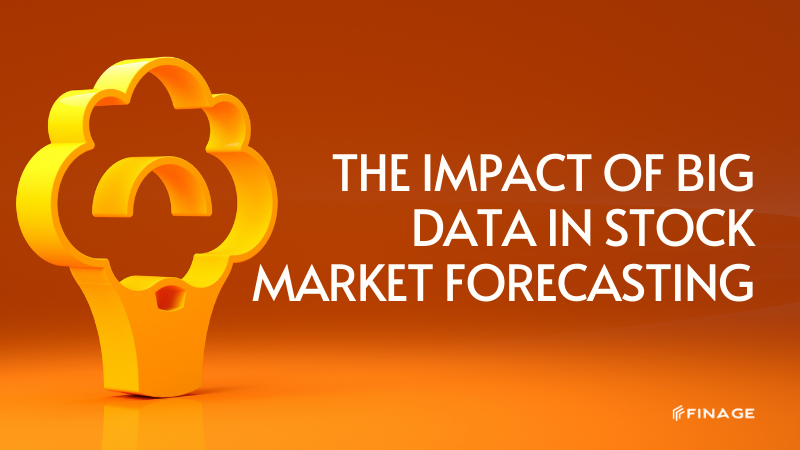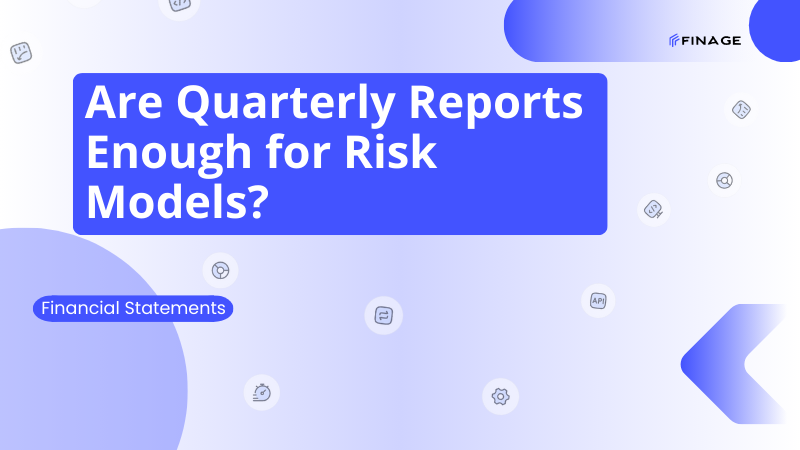The Impact of Big Data in Stock Market Forecasting
5 min read • January 27, 2024

Introduction
Table of Contents
- Understanding Big Data
- Enhanced Market Insights
- Predictive Analytics
- Algorithmic Trading
- Risk Management
- Real-Time Analysis
- Challenges and Considerations
- Navigating the Future of Big Data in Stock Market Forecasting
- Integration with Emerging Technologies
- Democratization of Data
- Enhanced Regulatory Compliance
- Improved Investor Education
- Challenges in Data Quality and Interpretation
- Ethical and Social Implications
- Conclusion
In the ever-evolving world of finance, the stock market has always been a focal point of attention for investors, analysts, and economists. With the advent and integration of Big Data, stock market forecasting has undergone a significant transformation. This blog post delves into the impact of Big Data on stock market forecasting, exploring how it's reshaping strategies, decision-making, and the overall landscape of investments.
Understanding Big Data
Before diving into its impacts, it's essential to understand what Big Data is. In simple terms, Big Data refers to the enormous volumes of data generated every moment from various sources. This data is characterized by its volume, velocity, variety, and veracity. It includes everything from traditional financial reports to unconventional data sources like social media, news trends, and even satellite imagery.
Enhanced Market Insights
One of the most significant impacts of Big Data in stock market forecasting is the enhanced market insights it provides. Traditional stock market analysis relied heavily on historical data and financial statements. However, with Big Data, analysts can now incorporate a myriad of data points, including consumer behavior, real-time news, and global economic indicators. This comprehensive approach offers a more nuanced and dynamic understanding of market trends and potential shifts.
Predictive Analytics
The use of predictive analytics in stock market forecasting has been a game-changer. By applying machine learning algorithms and data science techniques to Big Data, it's possible to identify patterns and trends that were previously undetectable. These predictive models can forecast stock price movements, market trends, and potential investment risks with a higher degree of accuracy, thereby aiding investors in making more informed decisions.
Algorithmic Trading
Algorithmic trading, which uses computer programs to execute trades at high speeds and volumes, has been revolutionized by Big Data. Algorithms can analyze large datasets in real time, identifying optimal trading opportunities that a human trader might miss. This not only increases efficiency but also enhances the profitability of trades.
Risk Management
In stock market forecasting, risk management is crucial. Big Data aids in better risk assessment by providing a more comprehensive view of potential market fluctuations and economic downturns. By analyzing diverse data sets, investors and financial institutions can better prepare for and mitigate potential risks.
Real-Time Analysis
The real-time analysis capability of Big Data stands out as a significant advancement. In the fast-paced environment of the stock market, having up-to-date information is crucial. Big Data allows for the analysis of real-time data streams, ensuring that investors and analysts have the most current information at their fingertips, leading to more timely and effective decision-making.
Challenges and Considerations
Despite its many advantages, the integration of Big Data in stock market forecasting comes with challenges. The sheer volume and complexity of data require advanced analytical tools and expertise. There's also the risk of data overload, where the abundance of information leads to analysis paralysis. Additionally, privacy and ethical considerations in data usage are increasingly coming to the forefront.
Navigating the Future of Big Data in Stock Market Forecasting
As we continue to explore the impact of Big Data on stock market forecasting, it's essential to consider how its role might evolve and what this means for investors, analysts, and the broader financial community.
Integration with Emerging Technologies
The future of Big Data in stock market forecasting is closely tied to the integration with emerging technologies like Artificial Intelligence (AI), the Internet of Things (IoT), and blockchain. AI and machine learning algorithms are becoming increasingly sophisticated, allowing for more advanced analysis and prediction models. IoT provides a vast network of data sources, contributing to the volume and variety of Big Data. Meanwhile, blockchain technology offers a level of security and transparency that could revolutionize how financial data is stored and shared.
Democratization of Data
Another significant trend is the democratization of data. With more open-source tools and platforms becoming available, smaller investors and firms now have access to Big Data analytics that were once the domain of larger institutions. This democratization is leveling the playing field, allowing for more competition and innovation in the market.
Enhanced Regulatory Compliance
As the use of Big Data grows, so does regulatory scrutiny. Authorities are increasingly focusing on how data is used in stock market forecasting, particularly with regards to privacy and ethical considerations. Firms will need to invest in systems and practices that ensure compliance with these evolving regulations. This may include more transparent data handling processes and robust data security measures.
Improved Investor Education
With the growing complexity of Big Data tools and strategies, investor education becomes crucial. Financial literacy programs will need to include components on Big Data analytics, helping investors understand not just the opportunities but also the limitations and risks associated with data-driven investment strategies.
Challenges in Data Quality and Interpretation
One of the ongoing challenges in leveraging Big Data for stock market forecasting is ensuring data quality and accurate interpretation. Misinterpretation of data or reliance on poor-quality data can lead to erroneous forecasts and investment decisions. Continuous efforts in improving data cleansing, processing, and interpretation techniques are essential.
Ethical and Social Implications
As Big Data continues to permeate stock market forecasting, its ethical and social implications cannot be ignored. Issues such as data privacy, bias in algorithmic trading, and the digital divide (where some investors may have more access to data and tools than others) need to be addressed. Striking a balance between leveraging Big Data for market gains and maintaining ethical standards is a challenge that the financial community must navigate.
Final Thoughts
In conclusion, Big Data is transforming stock market forecasting in profound ways. Its impacts are far-reaching, from enhancing market insights to reshaping trading strategies and risk management. As we move forward, the fusion of Big Data with emerging technologies, the emphasis on regulatory compliance, and the focus on ethical considerations will shape the future of stock market forecasting. For investors and market analysts, staying abreast of these changes and adapting to the evolving landscape of Big Data will be key to success in this dynamic and data-driven era of the stock market.
You can get your Real-Time and Historical Stock Data with a free Stock Data API key.
Build with us today!
Claim Your Free API Key Today
Access stock, forex and crypto market data with a free API key—no credit card required.

Stay Informed, Stay Ahead
Finage Blog: Data-Driven Insights & Ideas
Discover company news, announcements, updates, guides and more


